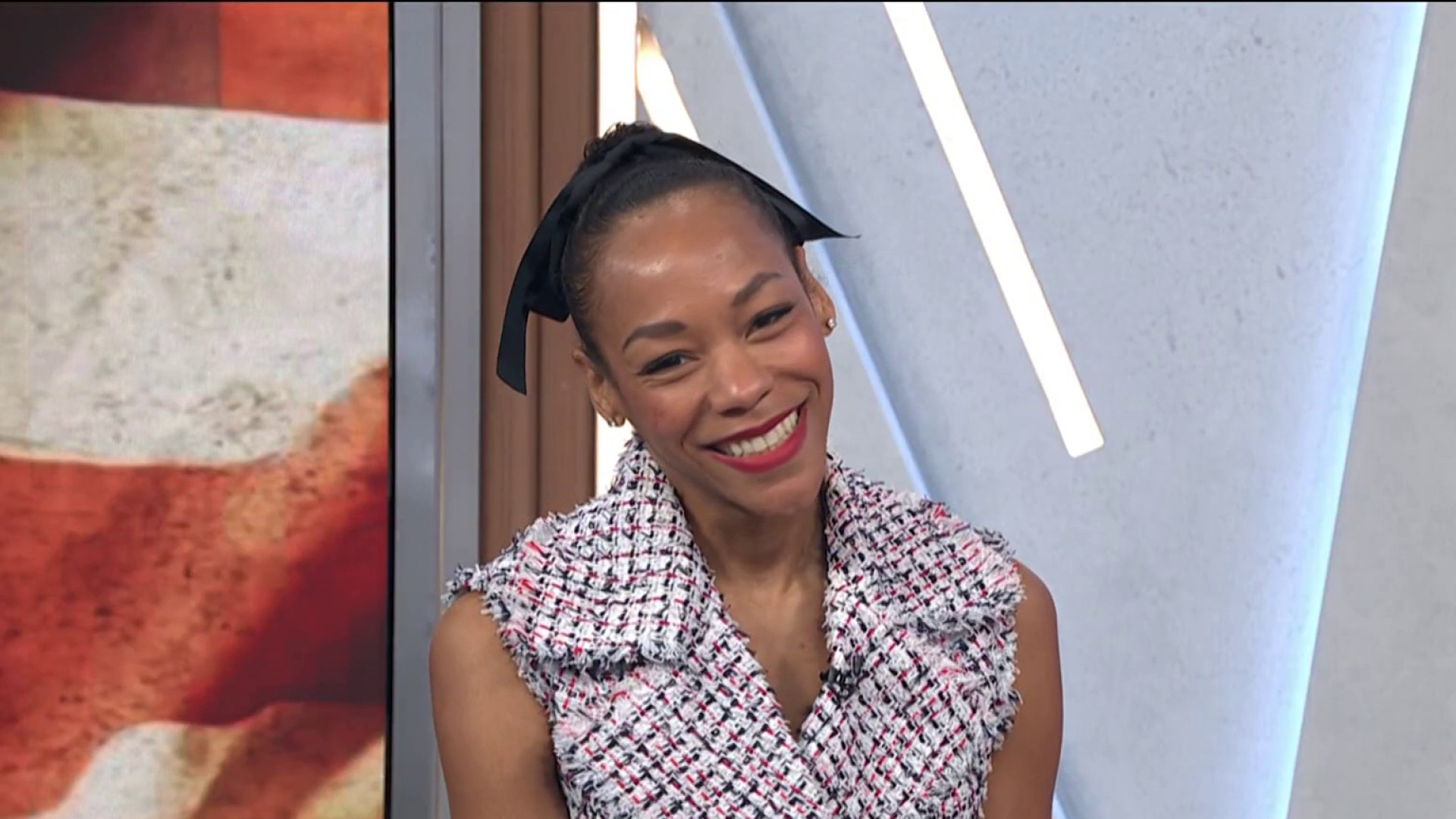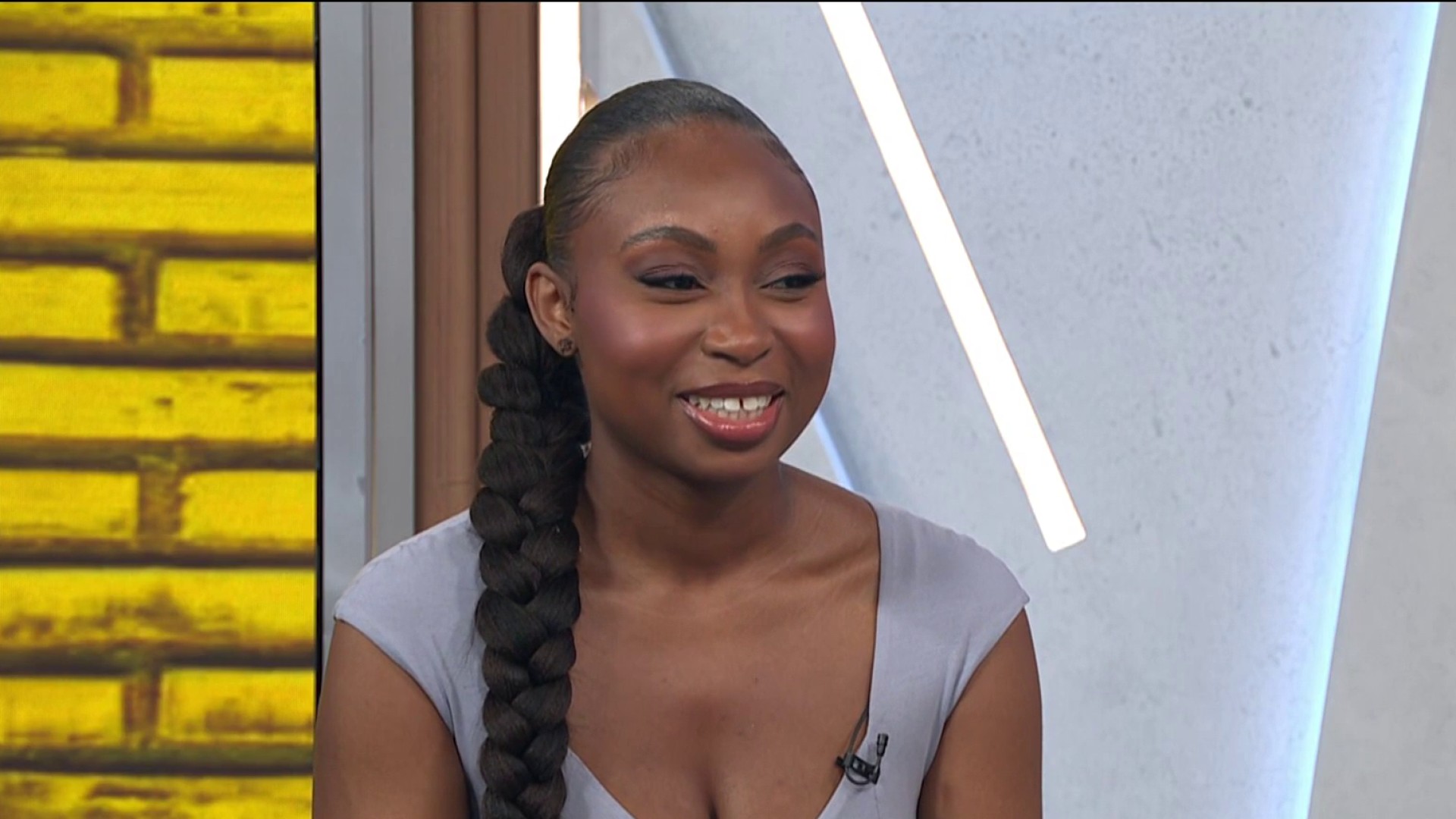If you’re like most people, you’ll know every era-defining song in “Motown" -- there are roughly five dozen, between medleys and straightforward performances -- but you won’t know much about their twisting journey to the charts. Motown founder Berry Gordy’s new musical, which has just opened at the Lunt-Fontanne Theatre, aims to change that.
Gordy may have relinquished control of Motown, selling the label in 1988, but there’s no doubt he’s in control of “Motown,” the musical: In addition to being the subject, he wrote the libretto and is a producer (as is Kevin McCollum, of “Rent” and “Avenue Q”). It’s directed by Charles Randolph-Wright, a member of the original cast of “Dreamgirls,” that fictionalized account of the rise of The Supremes ... the great girl group Gordy put on the map.
Based mostly on the producer’s own 1994 memoir, “Motown” is bookended by scenes set as the teetering label prepares to celebrate its 25th anniversary with the televised concert reuniting its biggest acts, among them the Temptations, the Jacksons, Smokey Robinson and Diana Ross. A curtain-raiser conveys the gravitas of the moment, with snippets of “I Can’t Help Myself,” “Ain’t Too Proud to Beg” and “Baby, I Need Your Lovin’” whetting our appetites for more of the Motown sound.
We meet Gordy (an endearing Brandon Victor Dixon, of “The Color Purple”) at his home, as he considers past abandonments and debates whether he should even attend, exclaiming to his secretary: “One day, you wake up and the stars you polished so hard to shine are not only shining, but in orbit, out of control of themselves and in control of you!” Will he show, or won’t he? You can guess.
“Motown,” which clocks in at nearly three hours with intermission, is a greatest hits collection of music and a treasure trove of history meant to depict how the events of the 1960s shaped the creation of the label. Like so many collections, it would benefit from some considerable paring down. I’d have preferred fewer of those awesome songs, with more of them performed in full. The actors (among them, the fine Valisia LeKae as Diana Ross and Bryan Terrell Clark as Marvin Gaye) do a swell job of not imitating the artists they’re charged with portraying, instead infusing roles with their own individual charms.
More nettlesome is the story, not that most people will care, since audiences will flock to “Motown” on the goodwill of its name alone. There is an awful lot crammed in here, from Gaye’s politics to Gordy’s legal troubles with the songwriting trio Holland-Dozier-Holland, who left Motown in 1967 after a dispute over royalty payments. What you end up with is a sprinkling of songs, narrative, another sprinkling, then more story. The construction might be palatable in a shorter piece, but here, it can be tedious. Would you want to be the guy telling Berry Gordy what to trim? Me neither.
The more electric moments in “Motown” illustrate how confections like The Marvelettes’ “Please, Mr. Postman” or Smokey Robinson’s “You’ve Really Got a Hold on Me” did double-time as hammers that smashed racial barriers, as Motown spread its message beyond Detroit. When a touring revue in Birmingham is interrupted by a gunshot, it spurs a moment of doubt for headliner Robinson (the excellent Charl Brown) about the next night’s gig: “Esther, let’s make sure the bus is at the stage door.”
Broadway
I walked away with a healthier sense of the fundamental role Smokey (and his Miracles) played in the whole affair, starting with the duo’s first meeting in the office of Jackie Wilson’s manager. An often-told anecdote about Smokey’s motivations behind “My Girl,” which he wrote for the Temptations -- essentially, that it was written as a response to “My Guy,” his earlier No. 1 hit for Mary Wells -- is a humorous high point in the first act, albeit a story Robinson has told differently.
Most of the second act focuses on Gordy’s relationship with Ross, whom he promises to nurture as she separates from the Supremes. Sections that deal with his attempts to launch Ross’ movie career (“Lady Sings the Blues”) tend to drag, and a scene that has Ross handing off her microphone to members of the audience is well-intentioned, but out-of-place.
No one will accuse the author of hiding his vulnerabilities. During a romantic getaway in Paris, he finds himself in bed with Ross, impotent; the incident is also characterized in Gordy's memoir. Years from now, theatergoers will talk about the camp value of the cut to the following scene, LeKae singing “I Hear a Symphony.” Because “Where Did Our Love Go” would have been too heavy-handed?
Raymond Luke Jr. and Jibreel Mawry alternate performances as the childhood versions of young Berry, young Stevie Wonder and, most thrillingly, young Michael Jackson. We meet young Michael rehearsing James Brown’s “I Got the Feelin.’” At the press preview I attended, Luke ended the number with a 360-degree spin, landing in a split. Berry was awed, and so was I.
Emilio Sosa’s costumes are as glitzy as you’d anticipate, with an emphasis on sequins. David Korins’ scenery, with a reliance on sliding panels, effectively transports us from the label’s Detroit home, “Hitsville, U.S.A.,” to Paris and back to Pasadena.
From a structural standpoint, “Motown” will be compared to the far superior “Jersey Boys.” Still, there are worse problems to have than a bloated script. “Motown” has a built-in audience and is likely to prosper for the foreseeable future: reports have the musical enjoying healthier advance ticket sales than even “Matilda” and “Lucky Guy.” Chalk up one more hit, at age 83, for Berry Gordy.
“Motown,” at the Lunt-Fontanne Theatre, 205 W. 46th St., for an open-ended run. Tickets: $57-$142, available through Ticketmaster at 877-250-2929, or at ticketmaster.com
Follow Robert Kahn on Twitter@RobertKahn



